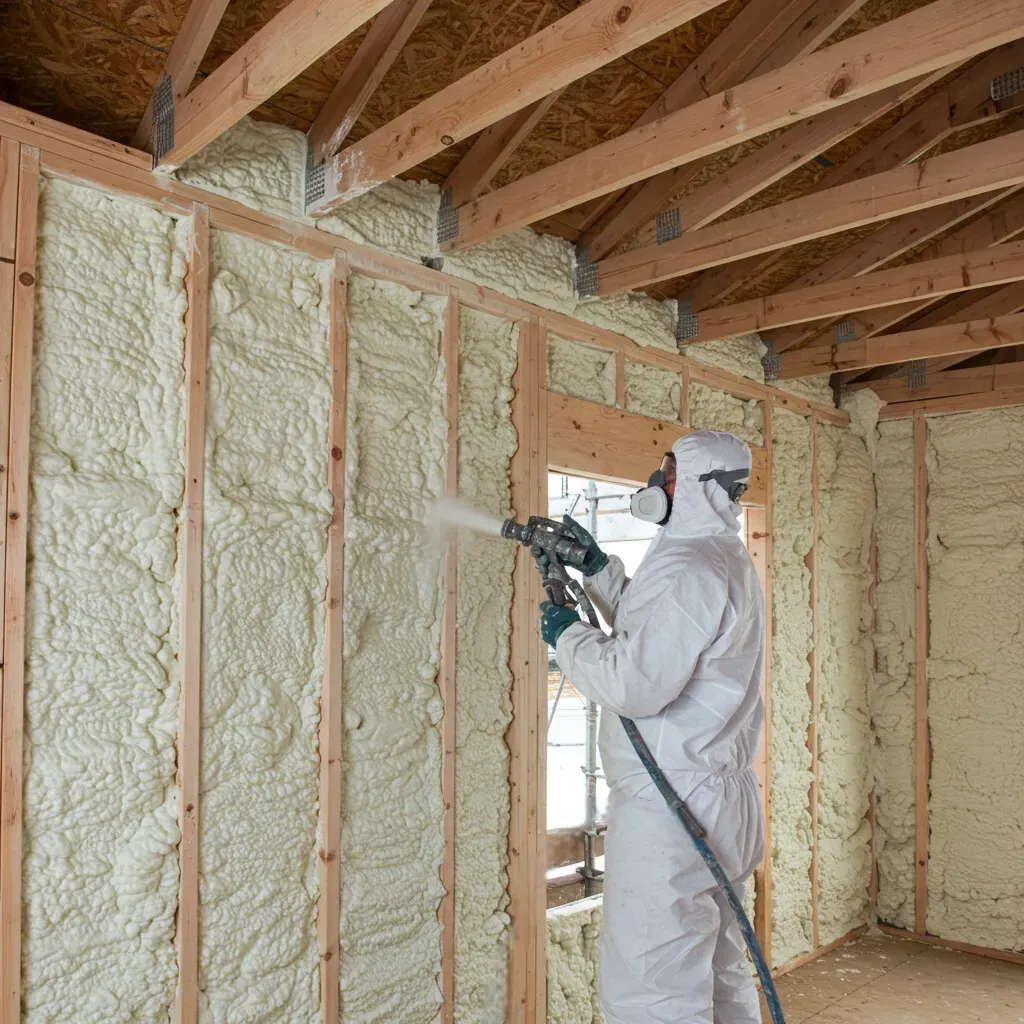Cascadia Spray Foam Insulation has announced the expansion of its spray foam insulation services in Seattle, Washington. The Seattle-based company now provides insulation installation for residential and commercial properties across an extended service territory. The expansion comes as property owners in the Pacific Northwest region seek energy-efficient solutions for building performance.
Spray foam insulation, available as open-cell or closed-cell formulations, is a liquid polymer that expands and hardens to form an insulating barrier. Open-cell foam is lighter and ideal for interior spaces and soundproofing, while closed-cell foam is denser, providing both insulation and structural support. In the Pacific Northwest, where moderate temperatures, high humidity, and heavy rainfall, Seattle averages 37 inches annually, making moisture control essential, choosing the right foam type is critical for effective building envelope performance.

Research from the U.S. Department of Energy indicates that heating and cooling account for approximately 50 to 70 percent of energy consumption in residential buildings. Air infiltration contributes significantly to this energy use, with gaps and cracks in building envelopes allowing conditioned air to escape and outdoor air to enter. Spray foam insulation addresses this issue by creating a continuous air barrier when properly installed.
Melissa Grant, owner of Cascadia Spray Foam Insulation in Seattle, outlined the rationale for the service expansion. "We have seen consistent requests from property owners in areas outside our initial service radius who need professional spray foam installation," Grant said. "Extending our coverage allows us to serve these customers while applying the same installation protocols and quality standards we maintain in our existing markets."
Spray foam insulation is a liquid polymer that expands and hardens to form a thermal and air-sealing barrier. Available in open-cell and closed-cell formulations, it provides different performance levels. Closed-cell foam has an R-value of 6–7 per inch and adds structural support, while open-cell foam offers R-3.5–3.7 per inch, making it suitable for interior spaces and soundproofing. Fiberglass batt insulation ranges from R-2.9 to R-3.8 per inch.
Washington State energy codes set minimum insulation requirements based on climate zones, building type, and heating systems, with compliance verified through plan review and inspections. Spray foam simplifies construction by combining insulation and air-sealing functions. Closed-cell foam also acts as a vapor retarder, helping manage moisture in humid conditions, though proper building design is essential to prevent trapped moisture.
Installation requires trained technicians using specialized equipment that mixes isocyanate and polyol resin, with performance affected by temperature, surface conditions, and application thickness. OSHA guidelines ensure installer safety, and occupants typically vacate the premises during curing. Proper surface preparation and precise mixing are essential to achieve the expected R-value and air-sealing performance. After curing, the foam forms a durable, long-lasting barrier that resists settling, moisture, and air leakage.
Recent regulatory changes have phased out high-GWP HFC blowing agents, replaced by lower-GWP alternatives like HFOs. Energy efficiency programs and utility rebates in the Pacific Northwest encourage insulation upgrades. Spray foam is widely used in residential, commercial, industrial, and agricultural buildings for thermal control, moisture management, and condensation prevention. Blower door tests and thermal imaging verify performance, and properly installed foam maintains thickness and R-value over decades. Retrofits in older buildings can significantly improve energy efficiency, especially in attics and crawl spaces.
Professional certification programs ensure proper application, safety, and compliance with building codes, including fire protection requirements. Material and installation costs vary by type and project size, with closed-cell foam generally more expensive. Property owners should consult qualified contractors to select the right insulation, meet code requirements, and achieve long-term energy savings.
###
For more information about Cascadia Spray Foam of Seattle, contact the company here:
Cascadia Spray Foam of Seattle
Melissa Grant
(425) 386-3500
info@cascadiasprayfoam.com
4659 S Willow St, Seattle, WA 98118
